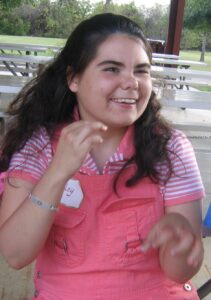It is heck of thing to have to start out Post 2 correcting something in Post 1, but it is what it is. 😊 One must beware of quoting by memory.
In Post 1 I quoted Yeats incorrectly.
I am grateful to Lane Rawlins for pointing out that the correct Yeats writing is
“I spit into the face of Time that has transfigured me.”
The correct quote provides a much different message than my post, which said disfigured me. Yeats conveys that he is elevated by time, not brought to a negatively implied physical state of being.
Yeat’s expression reminds me of what Frank Sinatra sang in “It Was A Very Good Year”.
“But the days are short in the autumn of the year
And now I think of my life as vintage wine from fine old kegs
From the brim to the dregs it poured sweet and clear
It was a very good year”
I did not relate to Frank Sinatra much when I was younger. Now I relate. 😊 If you have not heard the song in awhile I invite you to listen.
https://www.youtube.com/watch?v=ydcUaTpiHgQ
“It Was A Very Good Year” was written by Ervin Drake, whoever that is. My mother’s maiden name was Drake, so we may be related. I will have to investigate that. Related or not, good ol’ Ervin wrote a great song.
With corrections complete I turn to the topic of Post 2.
ASHLEY IN HISTORY CLASS
When my now 43 year old daughter, Ashley, was in junior high and high school, inclusion was a relatively recent effort to help those with disabilities. The idea was to put special needs children into regular curriculum classes so they will feel “normal” and be treated “normally”, and, in Ashley’s case, maybe learn what she cannot convey to us. Ashley has Rett Syndrome, which robbed her of speech and use of her hands, among other issues, some of which she has overcome.

For a brief time, we went along with inclusion, until we decided she needed a different kind of one-on-one help.
During the inclusion period, Ashley was in a Texas history class, and the teacher assigned the students to submit a short essay. I did not want Ashley to go unrepresented. I thought the best I could do for her was to write something that conveyed her situation to others. Students in her class likely had puzzling thoughts about Ashley, and I wanted them to better understand the difficulties she faced every day.
I sent the following essay to school with her, and her aid gave it to the teacher. The teacher read her essay to the class. The aid told me later that it was so quiet during that reading that you could hear a pin drop.
A Rett Syndrome Girl at the Alamo
By
Ashley Fry, through her Dad

Mrs. Dickinson held me tight when the sounds of the final siege began, her arm around my shoulders as we sat near a back corner in the Alamo chapel. Mr. Dickinson came in, looking anxious but strong, told her the song played on the bugle meant that Santa Ana’s army would fight to the death on this assault. He leaned down and put his face directly in front of mine, looked in my eyes, and told me that he loved me. He told me I was an angel.
The hardest thing about Rett Syndrome is not the loss of use of hands, or the general loss of the ability to control your muscles, and it is not even the ceasing breathing or the seizures that sometimes come. At this moment I knew the hardest thing about Rett Syndrome is that it took away my ability to talk. I wanted to thank Mr. Dickinson for all the times he walked with me and helped me eat, for all the times he said hello to me, and held my hand as we walked, for the times he read to me and sang to me. I wanted to say the same to Mrs. Dickinson who was trying not to look scared but had just a trace of tears in her eyes as she got up to hold her husband in her arms. I wondered what it must feel like for her to say goodbye for what promised to be the last time.
Santa Ana’s army had grown to many thousands, while the men under Colonel Travis numbered less than two hundred. I often wondered why the Mexican army was fighting us, and I was particularly puzzled because there were Mexicans in the Alamo ready to fight under Colonel Travis. Then I overheard some of the Mexicans talking about the dictatorship of Santa Ana. It had to do with freedom and fair treatment.
Outnumbering us by so much, it was obvious to everyone that Santa Ana’s army would eventually take the Alamo, at least that was the talk in the chapel. Help for Colonel Travis never came.
I was with Mrs. Dickinson for most of the siege of the Alamo, which had gone on for twelve full days and she was always explaining to me not to be afraid of the sounds. I knew she was, though, and I wished I could tell her I was glad I was with her, as she was a wonderful lady and so devoted to her husband. She believed in family. She always told me I was like one of her children, which made me feel special.
Mrs. Dickinson held her husband, thanked him, and told him, “We will meet again soon in a better place.” She came back to where I was and put an arm around my shoulders. I wished I could have told her how much I understood. Because I cannot talk, and because my mannerisms are different, some people think I do not understand, but I understand a lot, and I understood we were about to die. I wanted to tell her I was not afraid as long as she was with me.
The sounds grew terribly loud, gunfire, bumping, screaming, cannon fire, running, and bullets hitting the Alamo chapel walls. Colonel Fannin told us early in the battle that Colonel Travis had fallen. He told us to move into a small room in the chapel and pray for them all. The deafening noise seemed to last forever, yet not much time was really passing.
Soldiers from Santa Ana’s army stormed into the chapel and killed our guard as he was reloading. They ran at us with bayonets but they did not kill Mrs. Dickinson or me, or some others huddled with us. A soldier asked my name. Mrs. Dickinson told him that I did not talk. I would not have talked to him anyway. I did not like him.
We rode out of the Alamo late that afternoon. Santa Ana’s army was burning the bodies of the dead. Mrs. Dickinson saw her husband’s body and after that she did not talk for a long time either. Not until we left the Alamo did she speak again. She told everyone she met about the battle of the Alamo.
——
Thanks for caring to hear a little bit about my life. I sign off for now, and I wish many blessing for all of you.
Clifford
Leave a Reply